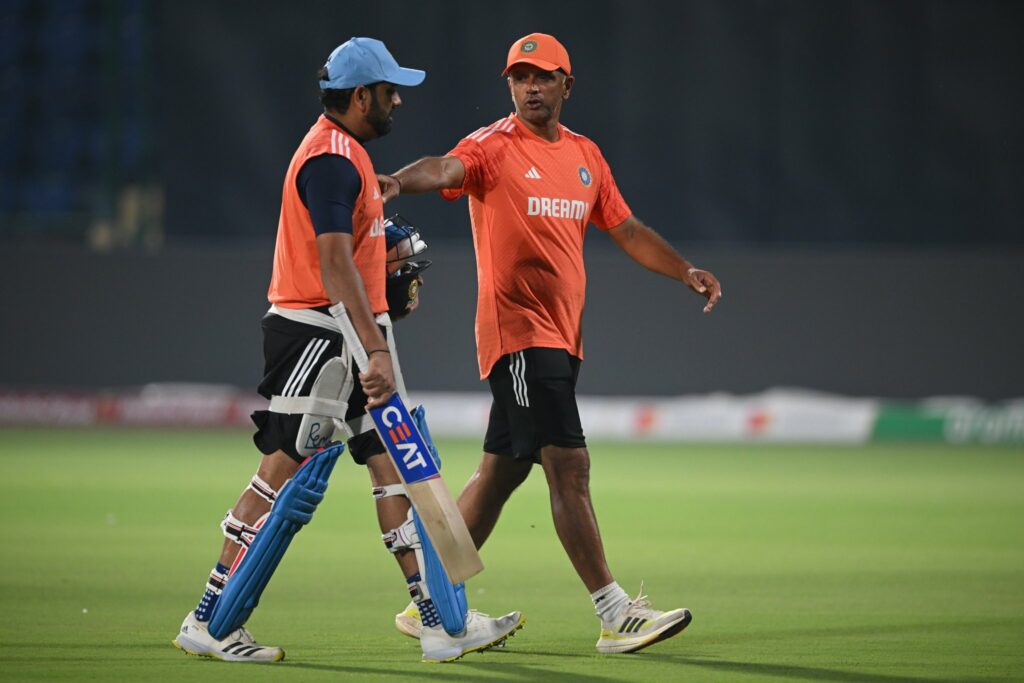Table of Contents
It takes years of effort, mental strength, practice and hard work to be a champion of another level. There is not a single formula for success; however, there are multiple psychological traits and characteristics that are common among high achievers.
The Mindset of a Winner
The winning mindset of a winner can be called the set of attitudes which differentiates him from other normal players. It plays a crucial role in helping them achieve success in sports. Let’s take a glance at the key components of the mindset of a winner:
Grit and Determination: Winners are highly determined individuals who are always willing to put in the hard work and effort required to succeed. They like to be challenged and known to come back strong from setbacks.
Self-Discipline: Winners have a high degree of self-discipline where they can do anything to achieve long-term goals. They adhere to their routines and practice consistency in their efforts, which eventually help them get the best out of them.
Mental Toughness: We have seen in almost every sport where some players are mentally tough as they remain composed under pressure. They are the winners who remain confident and determined in high-pressure situations and also do not let fear or anxiety hinder their performance.
Psychological Traits of Champions
The psychological traits of champions often contribute significantly to their success. However, there are several key attributes that are commonly associated with champions:
Teamwork and Leadership: In team sports and collaborative settings, champions are often known to provide strong leadership and teamwork skills. They can motivate and inspire their teammates to perform at their best.
Visualisation: Many champions use visualisation and mental imagery techniques to visualise their success. This helps boost their confidence and motivation, and they create a mental picture of themselves achieving their goals.
Overcoming Adversity in Sports
Adversity in sports is one of the common challenges that sports persons face in their careers. It includes injuries, losses, poor performances, pressure in competitions, etc. Here are a couple of tips and approaches to help athletes overcome adversity in sports:
Learn from Failure:
- View losses and setbacks as opportunities for growth and learning.
- Analyse your performance objectively and identify areas for improvement.
- Make adjustments to your training, strategy, or technique based on what you’ve learned.
Maintain Balance:
- Balance your athletic pursuits with other aspects of your life, such as family, friends, and academics or work.
- A well-rounded life can help you cope with adversity and provide perspective.
Stories of athletes who overcame challenges
There are numerous athletes who overcame challenges in their respective lives yet achieved success with their effort and hard work. Let’s take a look at the athletes with their success stories.
Michael Jordan is widely regarded as one of the greatest ever to play the game of basketball. He, too faced adversity in his career after being ignored by his high school’s basketball teams, but he used that rejection as motivation to work harder and thus became an NBA legend. He won multiple championships with the Chicago Bulls.
Serena Williams has been one of the finest tennis players of all time. She also faced health challenges in her career, but the American star battled back from the life-threatening blood clots and underwent surgeries. Even after going through all these difficulties, she won multiple Grand Slam titles and inspired millions of women to take up tennis in the USA and around the world.
Role of Mental Conditioning
Mental conditioning helps develop the mental skills and mindset required to be the best in the competition. There are multiple benefits of mental conditioning, including goal setting, pressure situations, and stress management to name a few.
The significance of mental conditioning in sports
Mental conditioning plays an important role in athletes’ lives, and it is highly significant in sports. It helps in managing stress and anxiety, which equips them to manage these emotions. It also helps athletes optimise their performance by improving their ability to focus, stay calm under pressure, and make effective decisions during competition.
Tips for Aspiring Champions
It is quite important to require dedication, hard work and a strong mindset to become a champion. There are several tips to keep in mind to become a champion:
Seek Guidance from experienced players: Coaches, mentors, and trainers are the perfect ones to seek guidance to become better in their respective fields. These knowledgeable individuals are the only ones who can refine their skills and develop winning strategies.
Believe in Yourself: Self-belief is a cornerstone of success, and it is crucial to trust in your abilities and maintain a positive mindset. It is important to surround yourself with a support system that believes in you as well.
Strategies for developing a winner’s mindset
Developing a winner’s mindset is crucial for success in sports as it empowers you to achieve your goals and overcome strategies.

Here are some strategies to help you develop a winner’s mindset:
Maintain a Positive Attitude: A positive attitude is necessary to maintain a winner’s mindset as it cultivates a positive outlook on your abilities and the challenges you face. It is quite crucial to believe in your potential to overcome obstacles and achieve success.
Setbacks Are Temporary: One has to remember that setbacks and failures are temporary. However, they don’t define your worth or your potential for future success.
Lessons from top athletes
NFL player Soloman Thomas has represented top teams like the San Fransisco 49ers and New York Jets, and the defensive linesman talked about how every action is scrutinised at the top level of sports.
“It’s like you are being judged for everything you do,”
he said.
Gymnast Simeone Biles walked out of the 2020 Tokyo Olympics final, earning a bronze medal as she decided not to fight for the gold medal or the silver medal in favor of her mental health.
“It means more than all of the golds because I pushed through so much the last five years and the last week while I’ve even been here. It wasn’t an easy decision, so it hurts that people were like, ‘Oh, she quit, I worked five years for that. Why would I quit? I just don’t quit. That’s not what I do,”
Many people questioned Biles’ decision, but her body and mental health weren’t in sync, according to her, and her decision to walk away at such a grand stage helped open more conversations about mental health for athletes.
Indian cricket team star and former skipper Virat Kohli also opened up about taking a break from the sport and revitalising his mental health, which is very crucial for every sportsperson.
“When I sat down and thought about it I was like, ‘wow, I haven’t touched a bat for like 30 days’. I haven’t ever done that in my life. I came to the realisation that I was trying to fake my intensity a bit recently. I was convincing myself that no, you had the intensity. But your body is telling you to stop. Your mind is telling me to take a break and step back.”
“I’m looked at as a guy who has been mentally very strong and I am. But everyone has a limit and you need to recognise that limit, otherwise, things can get unhealthy for you. There’s much more to life than just your profession. Or when the environment around you is such that everyone looks at only your professional identity, somewhere you start losing perspective as a human being.”


